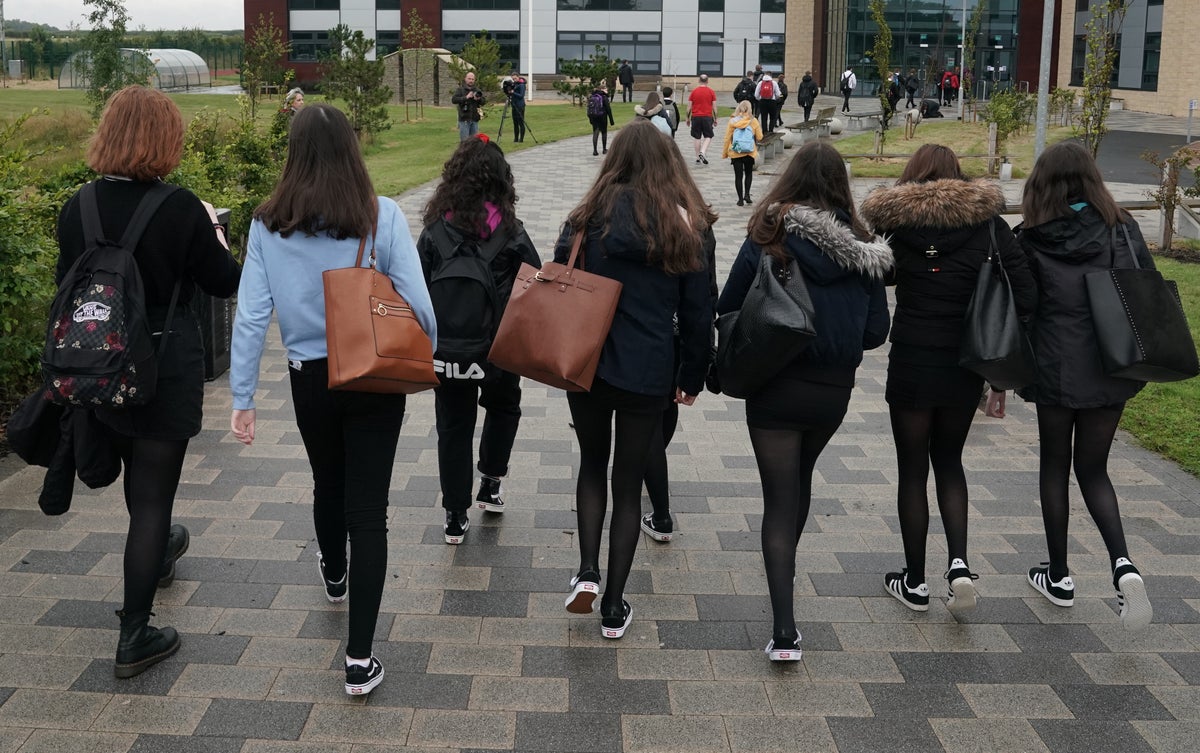
Two million courses have been started through the Government’s flagship National Tutoring Programme (NTP), according to the latest data.
Figures released by the Department for Education on Tuesday showed that pupils began nearly 600,000 courses in the last two months, taking the total to just under 2.1 million since the programme’s inception.
The Government said this means 80% of schools are now using the scheme, which is designed to help pupils catch up on learning lost during the pandemic.
The programme has previously been criticised for low take-up of courses through the tuition partners route, managed by Dutch HR firm Randstad, which has lost the contract for the coming year following concerns about the bureaucratic nature of its booking system.
The National Tutoring Programme is helping to level up opportunities for millions of children across England and these latest figures are further evidence of the programme revolutionising the support available to the children who need it most— Schools minister Will Quince
The majority of schools opted for schools-led tutoring instead, and next year schools will receive tuition funding directly from the Government, which the DfE said will “simplify” the programme.
In March, the NTP also removed the target of 65% of tuition support being provided to poorer youngsters in receipt of pupil premium funding, prompting fears from social mobility experts that this could widen the attainment gap.
The Government set a target of two million courses started for the 2021-22 academic year, with final data to be published at the end of the year.
In total, 1.8 million courses started between September 1 2021 and June 26 2022, which the Government said demonstrates “the huge value of the programme and the resilience of schools, teachers and young people, in the context of disruption to pupil and staff attendance over the winter, amidst the Omicron wave”.
The figures highlight a 14 percentage point increase in take-up of the tutoring programme since May 2022, with school-led tutoring now making up three-quarters of all courses started.
For the 2022-23 academic year, Tribal Group, Education Development Trust, and Cognition Education will lead on the programme’s delivery, replacing the previous model where Randstad was sole contractor.
Schools minister Will Quince said: “The National Tutoring Programme is helping to level up opportunities for millions of children across England and these latest figures are further evidence of the programme revolutionising the support available to the children who need it most.
“I am determined to provide every pupil with the opportunity to reach their full potential and look forward to working with Tribal Group, Education Development Trust, and Cognition Education to continue growing this vital programme and ensure even more children can benefit from the high-quality tutoring we know makes such a difference.”
Government figures show that 1,433,793 courses have been started through the school-led tutoring route this academic year, with a further 200,835 through tuition partners, and 147,318 through the third pillar of the programme, the academic mentors scheme.
Tribal Group will quality assure tuition partners, while Cognition Education will recruit academic mentors and deploy them to schools.
The Education Development Trust will provide training for new tutors.
The news follows an announcement in May that the Government will publish data on each school’s tutoring delivery at the end of the year and share it with Ofsted.
Former education secretary Nadhim Zahawi wrote to schools urging take-up of the scheme, calling on them not to “miss out on an opportunity to help pupils who could benefit now”.
We are pleased that the Government has finally seen sense and allowed schools to target funding as they see fit from September— Kevin Courtney, NEU
Geoff Barton, general secretary of the Association of School and College Leaders, said the Government had been “engaged in a campaign to pressurise schools” into using the NTP, which included “besieging them with telephone calls and the threat of a league table of schools’ take-up of the programme”, due to be published in the autumn.
“We are therefore not surprised to see an increase in uptake since May,” he said.
Mr Barton added that this was a “face-saving exercise” for the Government following issues with the tuition partners’ pillar.
“The Government has now launched a simplified version of the programme in which all funding goes directly to schools – something it should have done in the first place – and they then choose the tutoring route which best suits their needs,” he said.
But he added that this is only partially subsidised, and that the NTP still represents “a considerable cost” for schools to deliver when budgets are already squeezed.
The subsidy will be 60% in 2022-23.
Kevin Courtney, joint general secretary of the NEU teaching union, said the Government had ignored the advice on catch-up funding from former recovery tsar Sir Kevan Collins, and the DfE had ignored the advice of the profession, “which led to an initial approach to tuition which saw very poor take-up of the NTP”.
“We are pleased that the Government has finally seen sense and allowed schools to target funding as they see fit from September,” he said.







